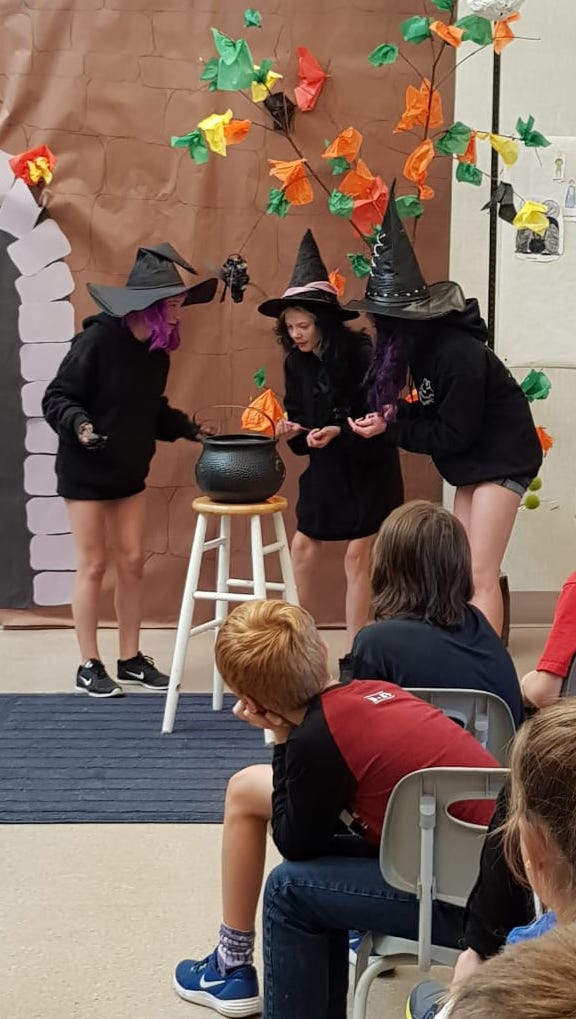
Gr. 6 and 7, Division 1, Myrtle Philip Community School
No more performances
Posted June 20, 2018
Two Macbeths back-to-back: one at Bard on the Beach last Sunday evening and one at Myrtle Philip Community School in Whistler the following morning. What a Shakespeare bonanza.
In the spirit of full disclosure, Division 1’s teacher is Ms. Shelley Ledingham and she’s my daughter. This is at least the second year she has ‘done’ a Shakespeare project with her students – eleven to thirteen-year-olds – studying a Shakespeare for Students adaptation, then performing the play in the classroom, and finally coming down to Bard on the Beach. Last time it was A Midsummer Night’s Dream; this year it was Macbeth.
They carpooled down last week to see the Bard version the day after they performed (for a couple of other classes) their own production. Having missed Division 1’s opening, I drove up for a ‘command performance’.
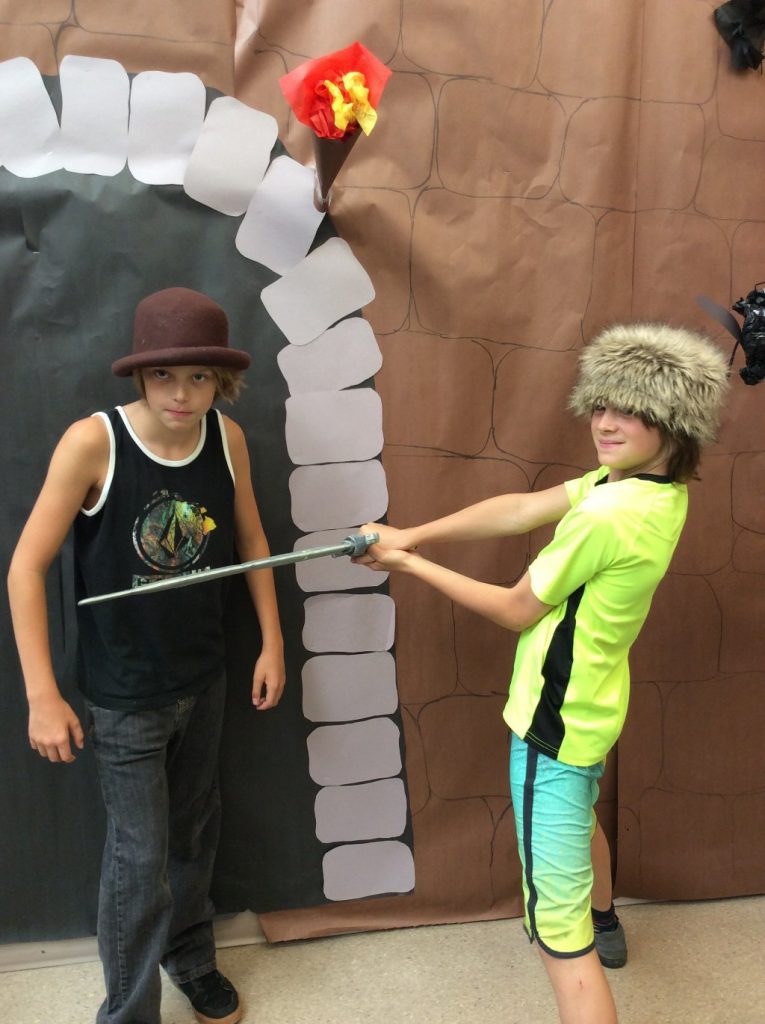
Shakespeare should always be this much fun. The students threw themselves whole-heartedly into it, beginning with the set – a backdrop of Macbeth’s castle. The banquet table had papier-mâché hand-crafted fruit (including bananas – a rarity, no doubt, on 11th Century Scottish tables) and turkey drumsticks. In their classroom, a green curtain stage right functioned as the Green Room from which the performers made their exits and entrances. Props, including swords, helmets, capes and crowns, were all laid out in an orderly fashion on a table down the hall outside the room.
The adaptation breaks the play down into eight scenes that take about an hour to perform. In order to involve all twenty-eight students, there were at least three Lady Macbeths, several Macbeths and a few Banquos. All were off book, a real accomplishment considering some of those long monologues. Sho Brooks valiantly stepped in at the last minute, script in hand, to fill in for another student who wasn’t feeling well enough to perform his scene. (Bard on the Beach, I remember, has had several similar instances.) That’s showbiz.
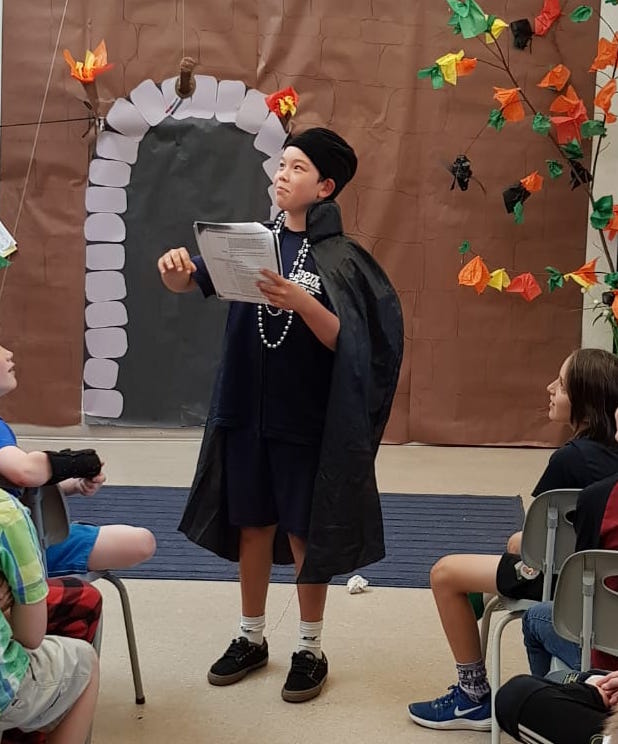
Here’s how it worked: the blue skirt and pearls always indicated Lady Macbeth be she tall and blond or shorter and brunette. Banquo always wore a coonskin hat; his ghost wore the coonskin hat plus a white mask. Macbeth wore a black cape and metal beads. The witches wore pointy hats. All the roles followed the same pattern; if you kept your eye on the costume, there was no doubt who was who.
The performance I saw was performed for two other classes and a smattering of parents. While Ms. Ledingham’s class was completely versed in the play having discussed the history, the politics, the psychology and gender issues for 4 weeks, the students from the other classes had had fairly minimal introduction. All was made very clear at the beginning of every scene with a brief intro as to what was to come following on the heels of the last scene. Prompts like, “What do you think Macbeth will do next?” kept the action rolling.
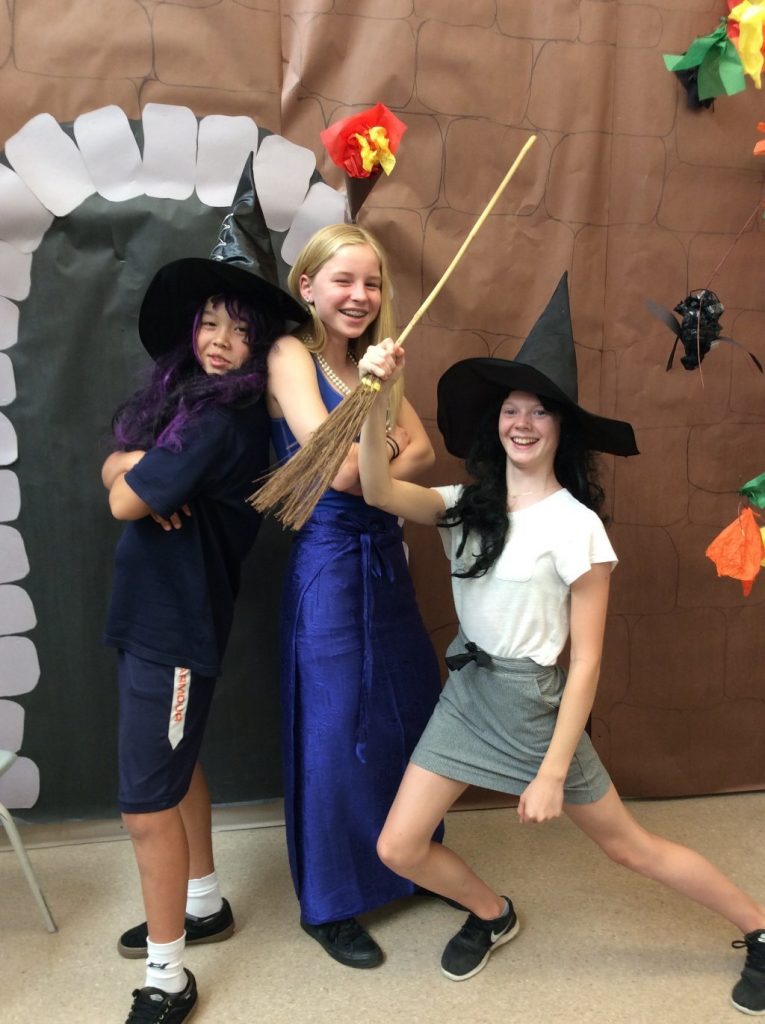
What a lot of fun. There were, of course, those who projected really well, used body language and looked like young professionals. And there were those who were a little stage struck, spoke sotto voce and looked at their feet. (That would have been me at that age!)
The audience was drawn in by questions posed by their teacher and I was so impressed with the mature level of response – not only amongst her own students but the visiting students, too. These kids are thinking, processing, and forming opinions.
Talking to some of them before and after the performance, I asked how they had enjoyed the Bard production. Unanimous response: “Awesome”. Were they ever confused? “Not really”. Did they think Macbeth would have killed Duncan without Lady Macbeth’s encouragement? “No way!” Who was their favourite character? A couple of boys said “Malcolm”, because he was “sort of like us”. Had seeing the Bard production changed the way they performed after seeing the professionals? Yes! Maya Tennock, who played the porter, really liked the drunken portrayal by Bard’s Kayvon Khoshkam and so she altered her performance and staggered around the stage in a similar fashion. Pretty darned funny.
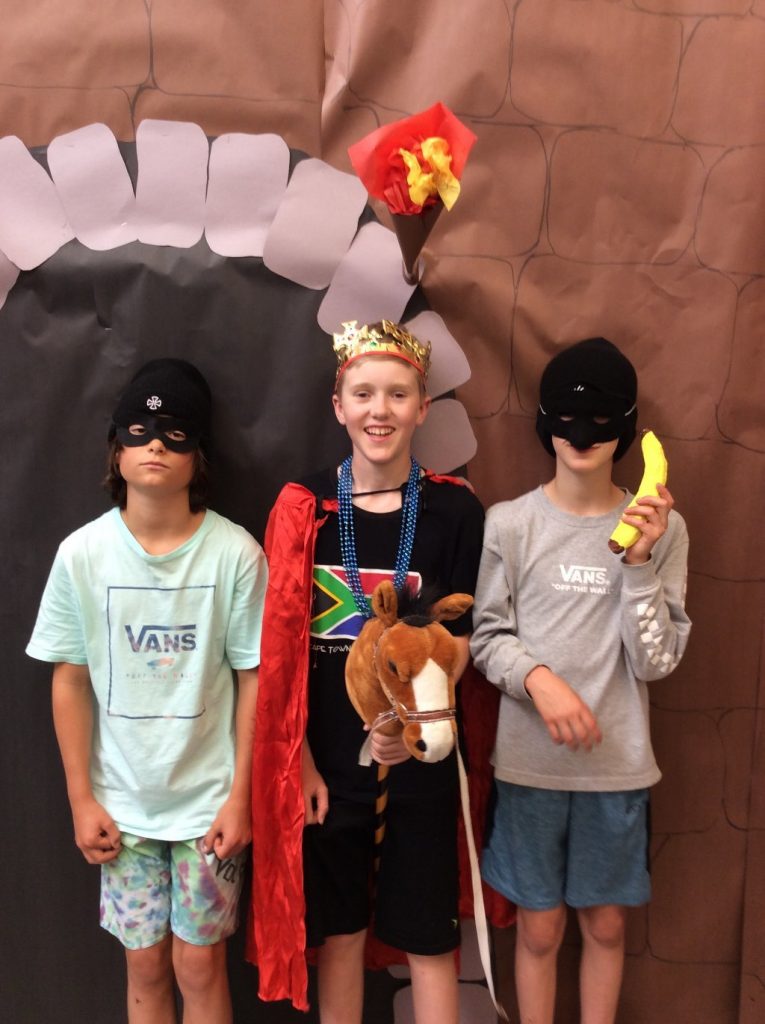
Two young men – Ben and Rowan – hung out with me afterwards and, again, I was blown away by their mature reflection on all things Macbeth and Shakespeare. Why did they think we keep doing Macbeth? Because, they opined, it’s still interesting and can happen anywhere, anytime. Did they think there were Macbeths still on the political stage today? “Kim Jong-un, maybe.” Wow.
Hooked on Shakespeare. Eleven to thirteen-year-olds. When I mentioned this performance to Bard’s artistic director Christopher Gaze his enthusiastic response was, “Wonderful!”
Yes, it is!

